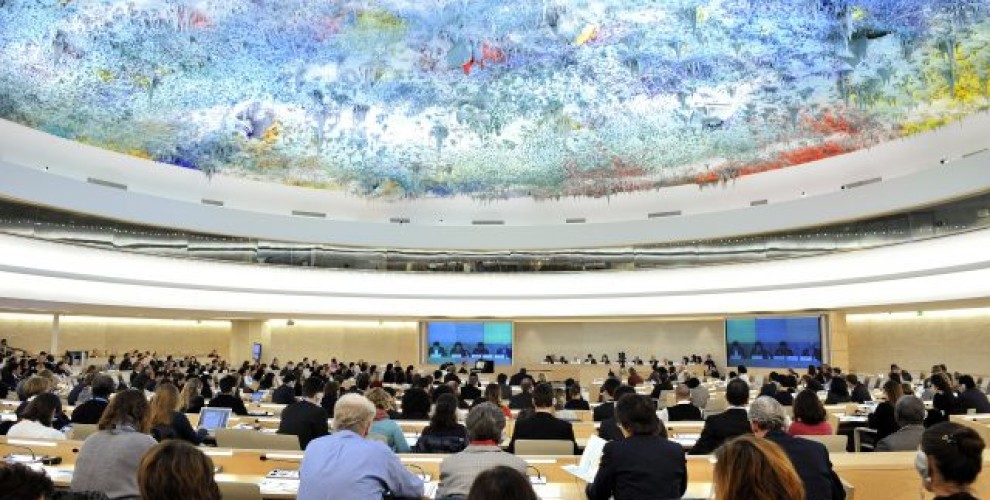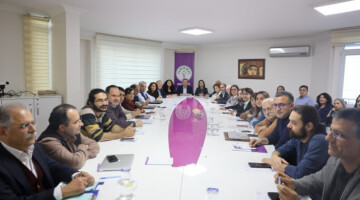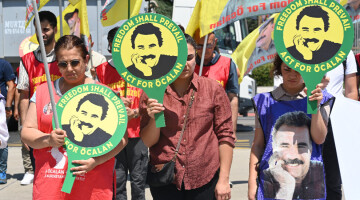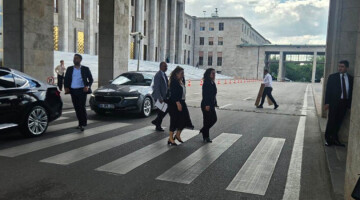The Human Rights Council this morning opened its fortieth regular session in Geneva, where it will session until 22 March.
Addresses were delivered by by António Guterres, Secretary-General of the United Nations; María Fernanda Espinosa Garcés, President of the United Nations General Assembly; Michelle Bachelet, United Nations High Commissioner for Human Rights; and Ignazio Cassis, Head of the Federal Department of Foreign Affairs of Switzerland.
Opening the session, Coly Seck, President of the Human Rights Council, reminded that the Council would hear statements by some 100 high-level dignitaries, testifying to the importance of the Council’s mandate and of human rights within the United Nations system. He welcomed the participation of the representatives of seven least developed countries and of small-island States. Recalling resolutions 16/21 and 36/21 of the Council which rejected any act of intimidation or reprisal against persons or groups that cooperated with the United Nations, its representatives and mechanisms, he called on all States to prevent such acts and ensure that those who needed it were granted protection.
Guterres: primary responsibility to uphold human rights rested with Member States
António Guterres, United Nations Secretary-General, stressed that the Council was the epicentre for international dialogue and cooperation on the protection of all human rights. Prevention had to be a priority and human rights were a template for building resilience and preventing crises. The primary responsibility to uphold human rights rested with Member States.
The human rights agenda was losing ground in many parts of the globe. At present trends, it would take two centuries to close the gap in economic empowerment and that was unacceptable. Civic space was shrinking in every region of the globe. Over a thousand human rights defenders and journalists were killed in the last three years.
There was a groundswell of xenophobia, racism and intolerance – including rising anti-Semitism and anti-Muslim hatred, said Guterres adding that hate was moving into the mainstream – in liberal democracies and authoritarian systems alike.
The 2030 Agenda and the Sustainable Development Goals were the clearest blueprint for realizing the rights of all, said Guterres.
Espinosa: The Council had to return dignity to all human beings worldwide
María Fernanda Espinosa Garcés, President of the United Nations General Assembly, highlighted the many contributions of the Human Rights Council to the whole human rights agenda.
The major challenge was to overcome the implementation deficit. The Council had to return dignity to all human beings worldwide.
Accordingly, Ms. Espinosa Garcés called for a renewal of commitment, dialogue and mutual understanding. Half of the global population, girls and women, continued to suffer discrimination and violence in all countries. They failed to enjoy the same level of political participation as men. Indigenous peoples continued to be the most excluded and vulnerable. People with disabilities continued not to enjoy the same opportunities. But perhaps the most pressing issue was inequality and the concentration of wealth in very few hands. If the goals of the 2030 Agenda were to be achieved, inequality needed to be addressed.
Bachelet: not be optimal, sustainable or inclusive development without the voices of civil society
Michelle Bachelet, United Nations High Commissioner for Human Rights, noted that in her service as Head of State of Chile, two lessons stood out to her, first that there was rarely a gap between the interest of humanity and the national interest of her country. If a policy seemed to advance a narrow interest in the short term but hurt the future of humanity, it was considered counter-productive.
Today, human rights were sometimes dismissed as supposedly being “globalist” as opposed to the patriotic interest of a sovereign government. But how could any State’s interests be advanced by policies that damaged the well-being of all humans? This was true of climate change, war and discrimination.
The second lesson was that she saw many human rights measures debated, enacted, adapted and upheld. There could not be optimal, sustainable or inclusive development without the voices of civil society.













